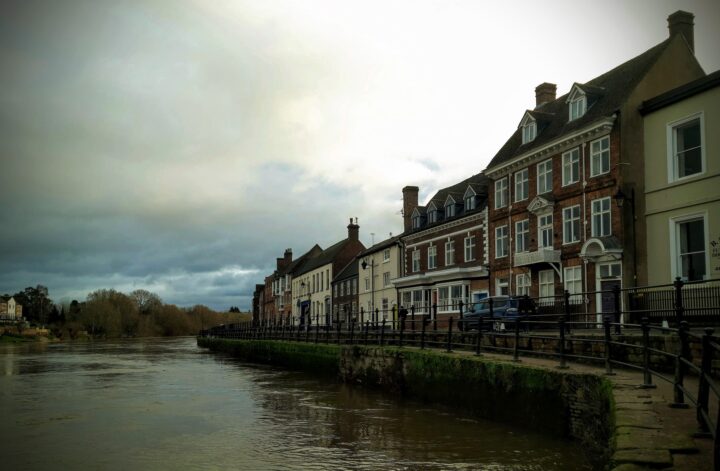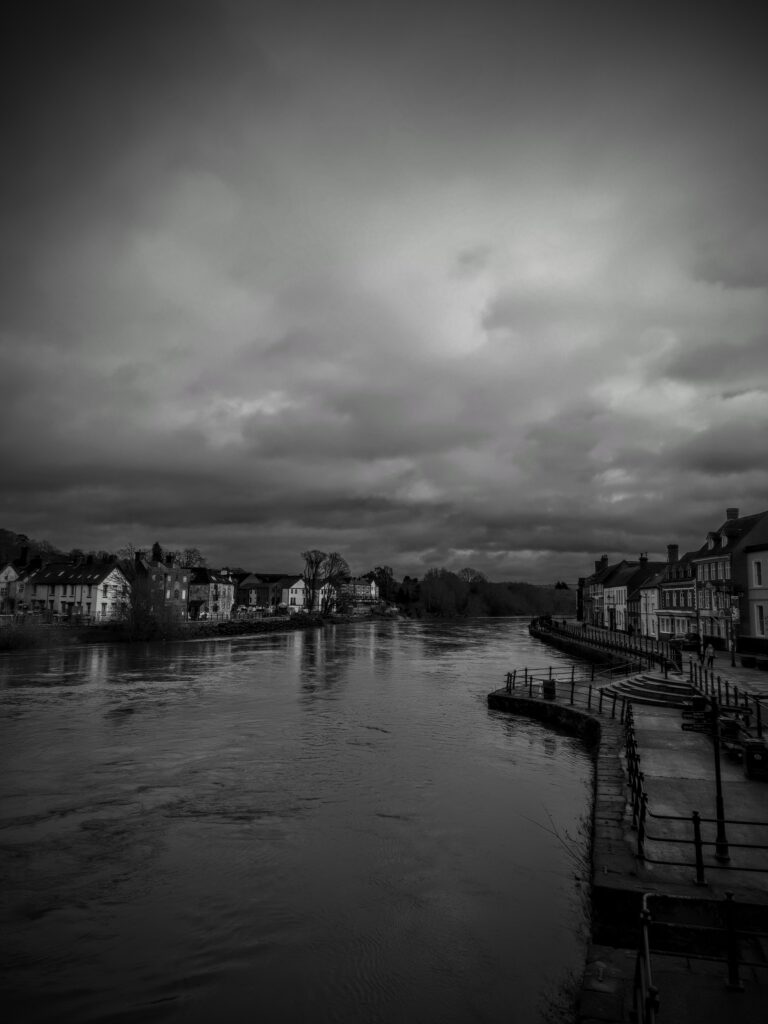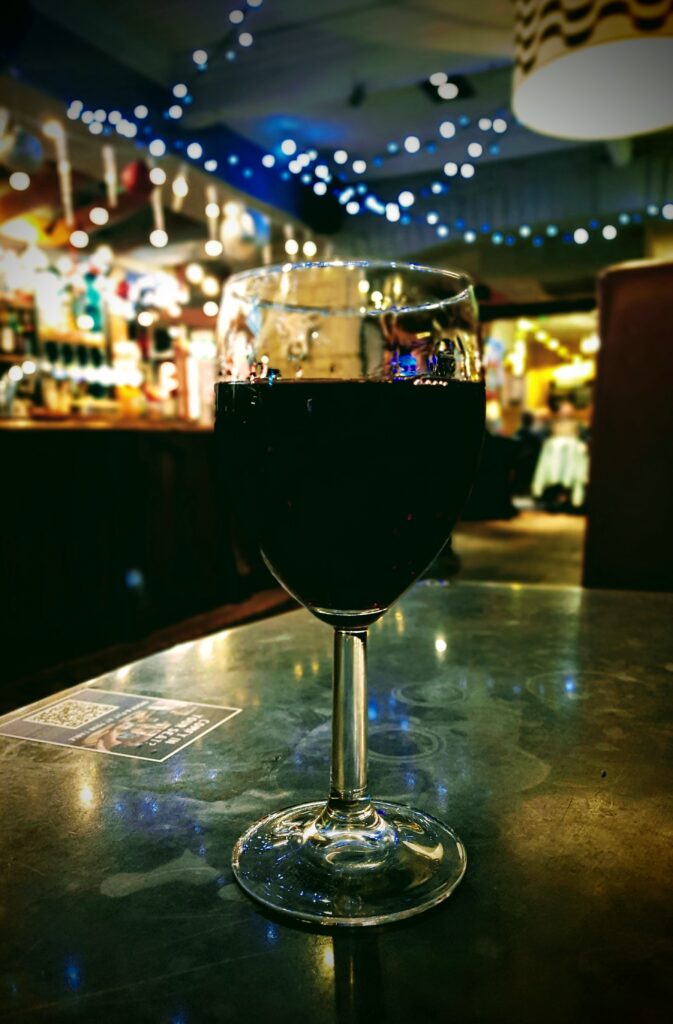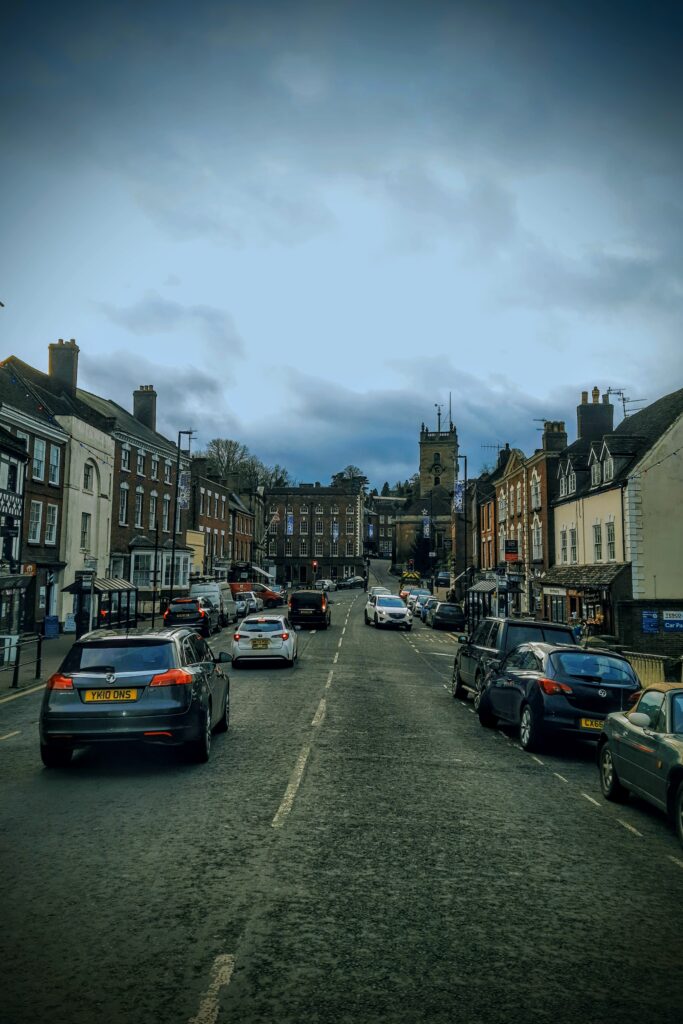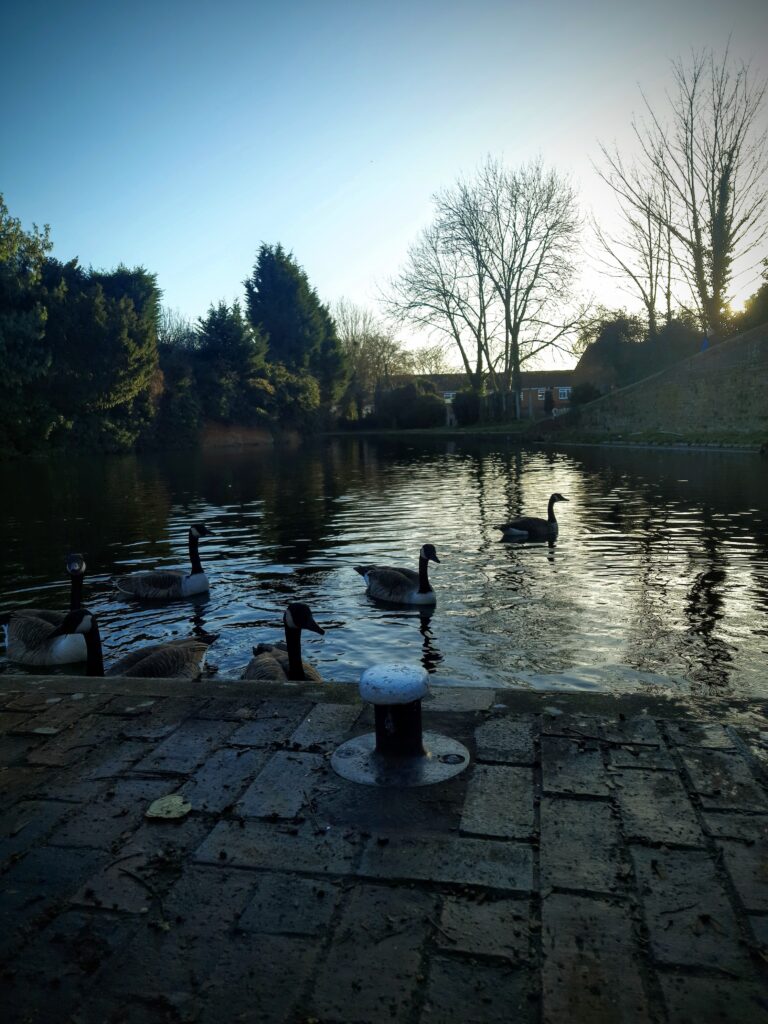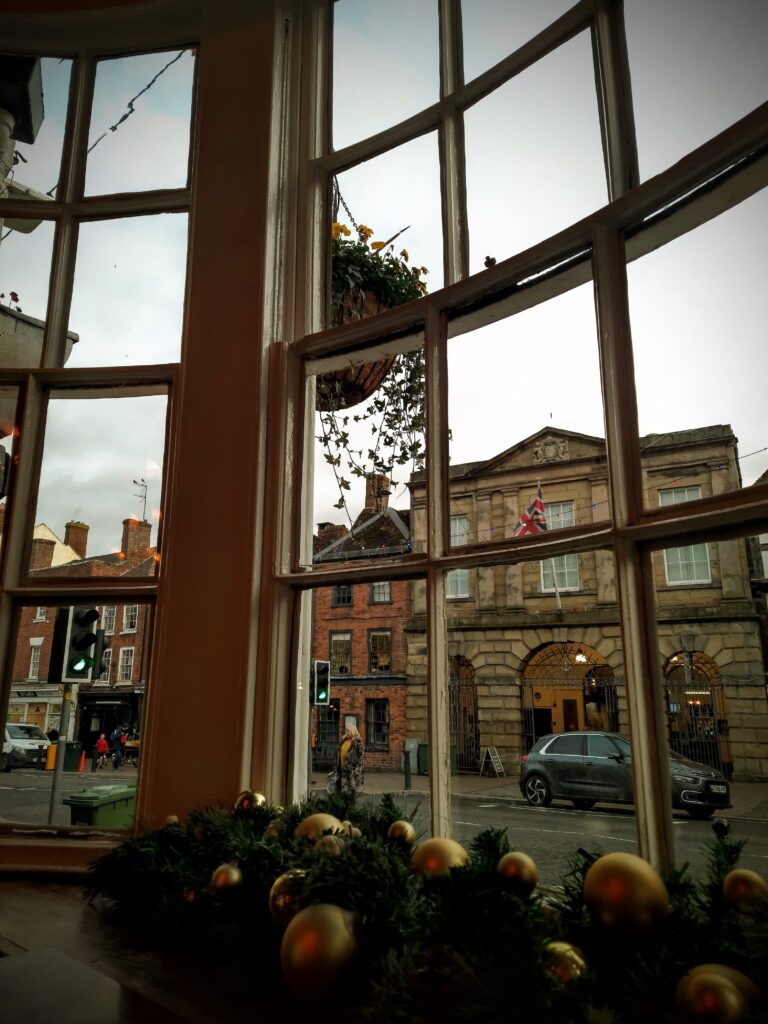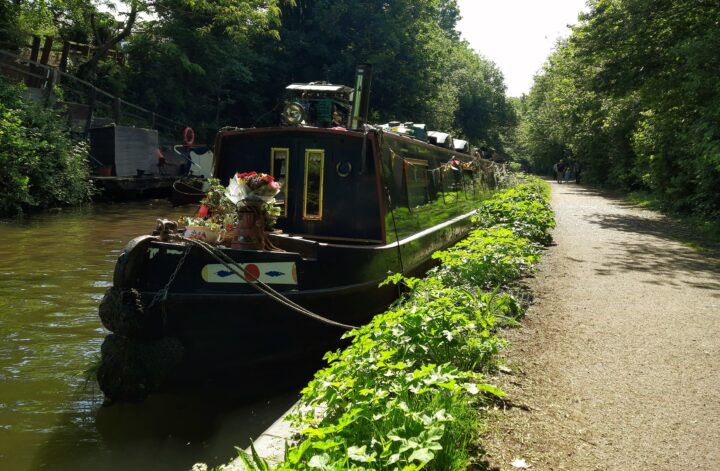Wordsley, Stourbridge, England: 8 degrees, cold, rainy and with flashes of the sun trying to appear.
There are five or six days until Christmas, depending on how you look at it. In Brazil, we celebrate Christmas on Christmas Eve at midnight. In England, we officially celebrate on the 25th with lunch.
I have always felt that Christmas in Brazil is a bit of an anticlimax. There is a big hype running up to Christmas, especially commercially speaking and then Christmas Eve you commemorate with family or friends, and then the next day, the 25th, is a dead day.
Many Brazilians have defended this, saying that on the 25th, there is a kind of informal lunch with the leftovers from the night before, Christmas Eve. OK, it is valid; I understand it, but it is not the same and does not have the same weight as in England.
In England, Christmas Eve on the 24th is reserved for friends, a party, a meeting in a pub, etc., but no family. It is a kind of informal run-up or rehearsal to Christmas with friends but without family.
Christmas Day, the 25th, is spent with family or friends and includes a large lunch. If you have children, you will most likely have to get up early, as they will be anxious to open their presents as soon as possible. I have vague memories of when I was very young, my brother and I would be up at 5:00 or 6:00 in the morning to go downstairs to open our presents, waking up our parents at stupid time o’clock.
After the presents have been opened, lunch is prepared in the morning. Usually, a late lunch is served at either 2:00 or 3:00 in the afternoon so that people can go to the pub between midday and 2:00 p.m. to wish others a very happy Christmas.
The pubs are usually completely packed on the 25th at lunchtime, as there are people who never go to the pub during the whole year, but on Christmas Day, they go to wish others a happy Christmas. For English people, sometimes wishing a person a Merry Christmas or a card can be more important than giving a present.
When I was last in England over twenty years ago, I went to the local pub with my brother and his father-in-law. From the outside of the pub, it buzz of a packed pub hit me like a hammer and gave me goosebumps. I will never forget it. You could cut the atmosphere with a knife.
It was an amazing experience, people whom I had never met wishing me a Merry Christmas. After two or three hours of drinking a couple of pints, talking, socialising, and wishing everybody a happy Christmas, we went home half-drunk for lunch.
Normally, after lunch, all of England is prostrate on the couch or even on the floor or on the bed from eating so much and nodding off with the music from “The Sound of Music” on TV in the background.
I have been told that nowadays, the classic film on the 25th of December for all of England, which was once “The Sound of Music” in the past, has now changed to “Love Actually”. This famous and well-known comedy romance has become a modern classic for English cinema and Christmas.
On the 26th, known as Boxing Day, people often celebrate Christmas again with another family or a group of friends, spending the 25th with one family and the 26th with another. There are many stories about how Boxing Day got its name, with one popular account being that churches used to collect money for the poor, which was then distributed in boxes on the 26th. However, my favourite story comes from the Victorian era when shop workers and tradespeople would work until Christmas Eve. They would spend Christmas Day with their own families and then gather with their colleagues on Boxing Day.
Since money was more appreciated in lower-income households, this practice allowed families to pay off debts, buy food, and cover bills. Colleagues would give each other money in boxes, ensuring that recipients knew how to use it at home and where it would be used, making it a more practical gift than an ordinary present.
So, in Brazil, it is basically one night, with a maximum of a lunch the next day from the leftovers from the night before. In England, it is three days of celebrations: Christmas Eve with friends, Christmas Day with one family, and Boxing Day with another family or friends.
I’ve always felt that Christmas in England is similar to carnival in Brazil. During the carnival period, there’s a unique atmosphere where people who typically wouldn’t introduce themselves, engage in conversation, or compliment others become more open and sociable.
I see a similar trend during the Christmas season in England, when people who usually don’t interact with others throughout the year are much more approachable and willing to connect during this festive time.
In bed by 11.30 p.m.
Thank you.
Thanks for reading this blog post. Please explore my other posts and share your thoughts in the comments section.
Richard

